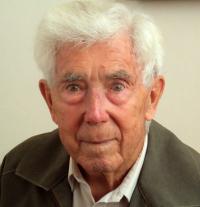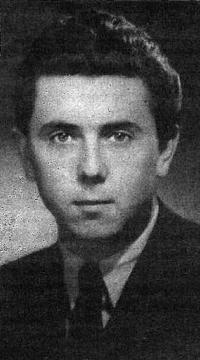Be honest and regard others with favor

Stáhnout obrázek
Dr. Vincent Samuely was born on November 12, 1926 in Vrútky to a family of railwayman professing Christian values and the autonomy of the country. Due to social events and due to terms of his father‘s profession, he studied at several schools. From 1937 until 1945 he attended grammar schools in Košice, Banská Bystrica, Prešov, and Malacky. Subsequently he enrolled at the Faculty of Law in Bratislava. Despite the fact that he was imprisoned three times as an undergraduate, he successfully graduated in 1950. (For the first time he was in jail from December 1945 until May of the following year, because he co-organised a leafleting campaign. His second detention was in connection with the elections in 1948. The reason was that he and his classmates brought to the attention that ballot papers were subtly marked with names. The third time he was arrested together with classmates and Professor Imrich Karvaš during the school trip in 1949. Several-days lastinginvestigation was related to the lecturer.) Vincent was employed at various places until 1957 (planning office, publishing house, directorate of glass and porcelain, iron work industry, and at building construction company).He got married in 1955 and in the two following years both of his sons were born. Because of his interaction and collaboration with CIC agent during the university studies and for accommodating a Vatican priest shortly after the completion of his studies, he was on November 1, 1957 arrested and convicted to seven years in prison. He was serving his sentence in the Valdice prison called „Kartouzy“ but thanks to the amnesty granted on May 9, 1960 he was released. The following years he worked in the magnesium factory in Revúca. In 1965 he and his family were assigned a flat in Košice where he was at first employed in a construction company, and then at a regional public health network. He worked as a legal adviser at the Constitutional Court in Košice after the Velvet Revolution and he also published articles on political topics. Presently he is a chairman of the Confederation of Political Prisoners in Košice and lives there with his second wife to whom he got married in 1985.


